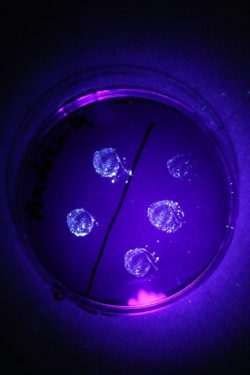LIFD Mobility Award 2019 Case Study
Leeds Institute for Fluid Dynamics mobility award – Case Study, Dr Marco Felipe-King
Leeds Institute for Fluid Dynamics (LIFD) member Dr Marco Felipe-King was awarded mobility funding in 2019 by the LIFD to facilitate international collaboration, and to further impact for his research.
Marco used the funding to progress a collaboration with Amanda Wilson and Kelly Reynolds at the University of Arizona, whereby Amanda visited Leeds. Since this visit has taken place, the collaboration established by Marco has resulted in a number of significant outcomes, including four publications, a Royal Society international travel grant (£5500) to work on fundamental risk models to evaluate bioaerosol deposition in indoor environment.
Publications that resulted as a consequence of the mobility visit:
- Wilson AM, Verhougstraete MP, Beamer PI, King M-F, Reynolds KA, Gerba CP. Frequency of hand-to-head, -mouth, -eyes, and -nose contacts for adults and children during eating and non-eating macro-activities. J Expo Sci Environ Epidemiol 2020. https://doi.org/10.1038/s41370-020-0249-8
- Wilson A, King M, López-García M, Weir M, Sexton J, Canales R, et al. Evaluating a transfer gradient assumption in a fomite-mediated microbial transmission model using an experimental and Bayesian approach. R Soc Interface 2020. https://doi.org/10.1098/rsif.2020.0121
- King M-FM, López-García M, Atedoghu K, Zhang N, Wilson AM, Weterings M, et al. Bacterial transfer to fingertips during sequential surface contacts with and without gloves. Indoor Air 2020; https://doi.org/10.1111/ina.12682.
- Wilson AM, Abney SE, King M-F, Weir MH, López-García M, Sexton JD, et al. COVID-19 and non-traditional mask use: How do various materials compare in reducing the infection risk for mask wearers? J Hosp Infect 2020. https://doi.org/10.1016/j.jhin.2020.05.036.
The Royal Society International travel grant awarded to Marco to visit Amanda Wilson in the USA is to work on modelling healthcare worker exposure from contaminated surfaces. Details of the planned work is outlined below.
Modelling healthcare worker exposure from contaminated surface with influenza or undiagnosed coronavirus during hospital patient care
Viruses like influenza and coronavirus are thought to be transmitted both through the air but also from contaminated surfaces. In hospitals where patients may be undiagnosed, there is a risk to healthcare staff through inhalation of airborne viruses, as well as to themselves or other patients through touching contaminated surfaces despite wearing gloves or performing hand hygiene after care. With the world health organisation prioritising hand hygiene as ma mode of reducing transmission, it is important to analyse the extent to which this may help in healthcare settings.
We propose to use computational fluid dynamics to model a patient releasing virus droplets in a mechanically ventilated hospital single-bed room to quantify the resulting surface contamination in the room. We will investigate the effect of whether they are released through coughing or sneezing. We will then use surface contact behaviour data previously observed on a respiratory ward in the UK during specific care types to inform the frequency and patterns of what staff touch whilst conducting patient care.
Knowing that hand hygiene is not 100% effective, we will adapt exposure risk models of viral transfer from surfaces to hands to evaluate the exposure to healthcare staff and subsequent patients. As a result we will then run mathematical “what-if” scenarios to investigate the effectiveness of different infection prevention strategies including surface cleanliness, hand hygiene methods and the use of gloves.

Transfer of a fluorescents tracer from sequential contacts with a contaminated finger during an experiment to understand how microorganisms are spread
If you are a member of staff at Leeds interested in a Leeds Institute for Fluid Dynamics mobility visit, please get in touch with us at fluids-institute@leeds.ac.uk

